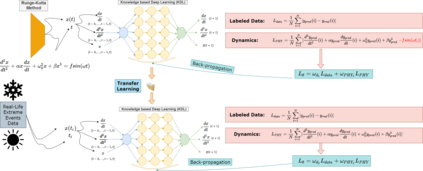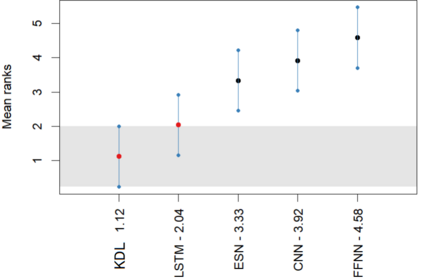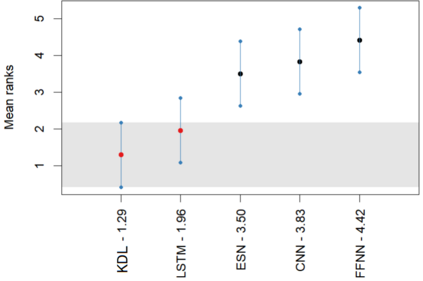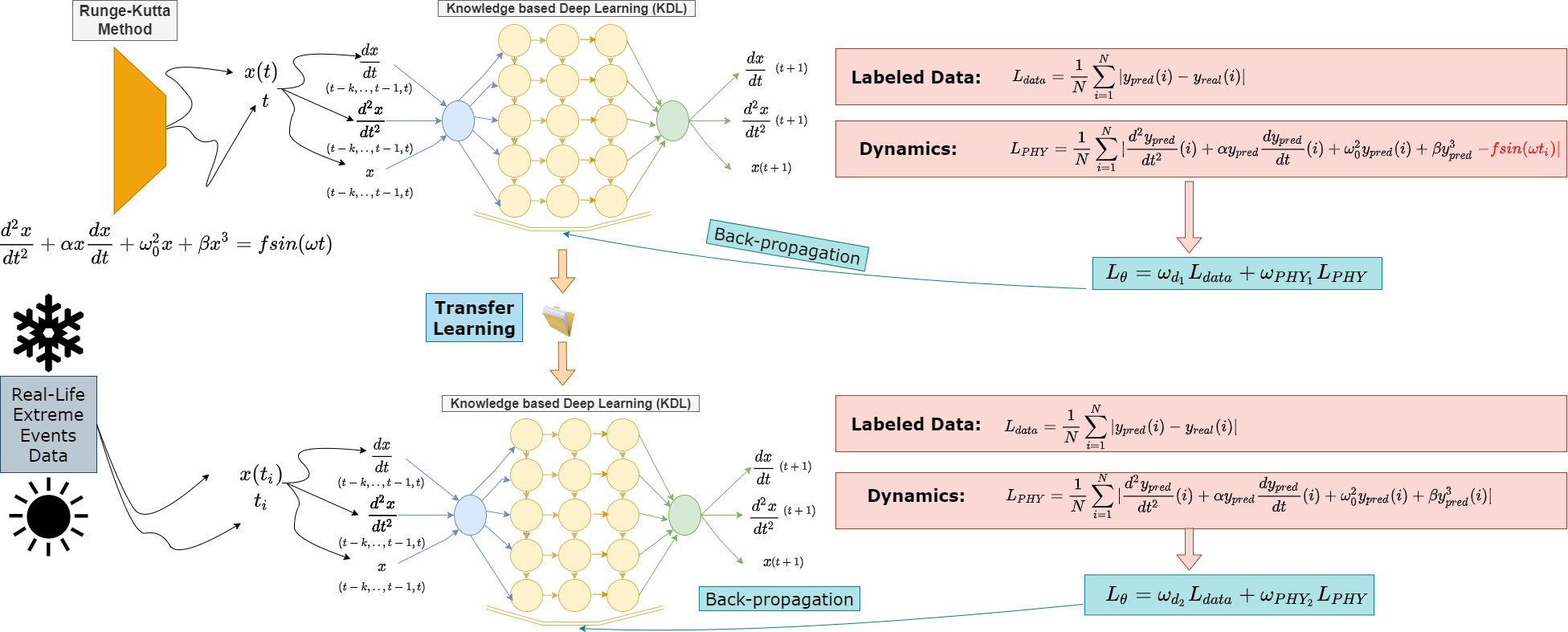Deep Learning has received increased attention due to its unbeatable success in many fields, such as computer vision, natural language processing, recommendation systems, and most recently in simulating multiphysics problems and predicting nonlinear dynamical systems. However, modeling and forecasting the dynamics of chaotic systems remains an open research problem since training deep learning models requires big data, which is not always available in many cases. Such deep learners can be trained from additional information obtained from simulated results and by enforcing the physical laws of the chaotic systems. This paper considers extreme events and their dynamics and proposes elegant models based on deep neural networks, called knowledge-based deep learning (KDL). Our proposed KDL can learn the complex patterns governing chaotic systems by jointly training on real and simulated data directly from the dynamics and their differential equations. This knowledge is transferred to model and forecast real-world chaotic events exhibiting extreme behavior. We validate the efficiency of our model by assessing it on three real-world benchmark datasets: El Nino sea surface temperature, San Juan Dengue viral infection, and Bj{\o}rn{\o}ya daily precipitation, all governed by extreme events' dynamics. Using prior knowledge of extreme events and physics-based loss functions to lead the neural network learning, we ensure physically consistent, generalizable, and accurate forecasting, even in a small data regime.
翻译:深层学习因其在许多领域,例如计算机视觉、自然语言处理、建议系统,以及最近在模拟多物理学问题和预测非线性动态系统方面所取得的不可战胜的成功而日益受到越来越多的关注。然而,对混乱系统的动态进行建模和预测仍然是一个开放的研究问题,因为培训深层学习模式需要大数据,而在许多情况下,这些数据并非总能获得。这些深层学习者可以通过模拟结果获得的额外信息以及通过执行混乱系统物理定律来接受培训。本文审议了极端事件及其动态,并提出了基于深层神经网络的优雅模型,称为基于知识的深层学习(KDL)。我们提议的KDL可以通过直接从动态及其差异方程式中联合培训真实和模拟数据来学习关于混乱系统的复杂模式。这一知识被转移到模拟和预测真实世界的混乱事件,并显示极端的行为。我们通过在三个真实世界基准数据集上评估模型的效率:El Nino海平面温度、San Juan Dengue病毒感染和Bjourn天降水深线,这些模型都由极端的物理和精确的物理动态系统来管理,确保我们以往的精确的物理预测和精确的系统。








